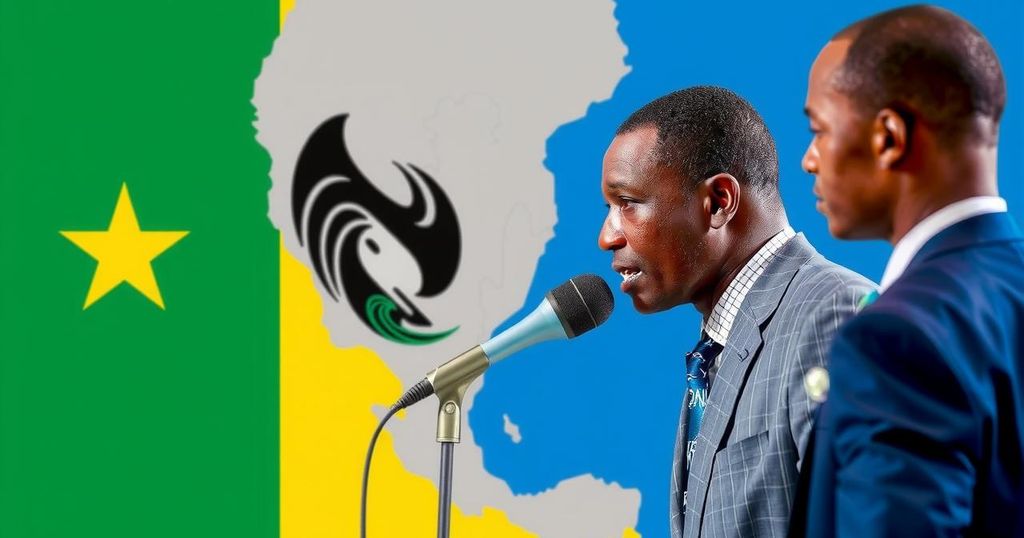Guinea-Bissau Media Navigate Threats and Challenges Ahead of Upcoming Elections

As Guinea-Bissau approaches its elections on November 24, 2023, journalists are facing significant challenges, including government-imposed licensing fees and threats of violence. With insufficient funding, media organizations are seeking support from international partners like the UNDP while contending with corruption and the influence of organized crime. The current situation raises concerns about the independence of the press and the safety of journalists within the country.
As Guinea-Bissau approaches its elections on November 24, 2023, a challenging environment has emerged for both politicians and journalists. The media landscape is grappling with significant hurdles, chiefly due to limited financial resources and external pressures affecting their independence. In anticipation of the high-stakes electoral period, various media organizations are formulating proposals to attract support from international stakeholders, notably the United Nations Development Program (UNDP). This support is crucial as it assists journalists’ coverage efforts, which are threatened by inadequate funding and mounting repression. The UNDP has historically provided varying levels of financial assistance to media entities during election cycles. For instance, during the recent parliamentary elections, several local radio stations and newspapers received approximately $2,500 each in funding. Such assistance is critical amidst reports of hostile treatment towards media outlets and the concerning implications of financial dependency on political entities, which, in turn, jeopardizes journalistic impartiality. In addition to financial challenges, the media is encountering harassment from state authorities, which have demanded exorbitant licensing fees – $5,000 – exacerbating threats to press freedom. Numerous radio stations are struggling to meet these demands, and in a previous instance, 79 radio stations faced closure due to unpaid fees. This situation underscores the air of intimidation that has pervaded Guinea-Bissau’s media sector, with incidents of armed men assaulting journalists and storming media facilities becoming alarmingly frequent. The political climate is fraught with tension, influenced by the rising threat of corruption tied to organized crime and drug trafficking. The government’s actions, including the dissolution of parliament following an alleged coup attempt in December 2022, have further destabilized the situation. Despite the challenges, the media plays a pivotal role in informing the public about critical issues, including health care, education, and social welfare, all of which are currently under scrutiny due to growing public discontent. While initiatives for civic education and international collaboration exist, the urgency for independent journalism is paramount as election day approaches. A lack of protective measures for journalists can compound the societal issues presented, particularly as four political parties and three coalitions vie for control in an increasingly polarized environment. As Guinea-Bissau approaches its elections, the integrity of its media and the freedom of its press remain precarious.
The lead-up to electoral events in Guinea-Bissau traditionally exposes the media to significant operational challenges and ethical dilemmas. With elections scheduled for November 2023, the environment for journalists is strained by both a lack of independent funding and threats from governmental entities seeking to control narratives. Historical precedents show that media organizations often rely on external aid to maintain coverage integrity, especially during high-stakes political campaigns. The escalating demands from authorities for excessive payment for broadcasting licenses only serve to deepen financial strains and impede journalistic freedom, raising alarms about the overall health of democracy and civic participation in Guinea-Bissau. The societal ramifications are dire; mounting corruption and influences from organized crime further complicate the media’s ability to report objectively. In light of this, the role of international organizations, alongside the resilience of local media, is crucial as Guinea-Bissau navigates this precarious juncture.
In conclusion, the current state of the media landscape in Guinea-Bissau portrays a critical intersection of political contestation, corruption, and threats to journalistic independence. The upcoming elections present both challenges and opportunities for media organizations seeking to uphold democratic principles. With the government imposing significant barriers to operational viability, such as exorbitant licensing fees and direct intimidation of journalists, there remains a pressing need for both local and international support to foster a healthy environment for free press in Guinea-Bissau. As stakeholders engage in this pivotal electoral season, the survival and integrity of independent journalism will be paramount in shaping the future civic landscape of the nation.
Original Source: www.voanews.com








